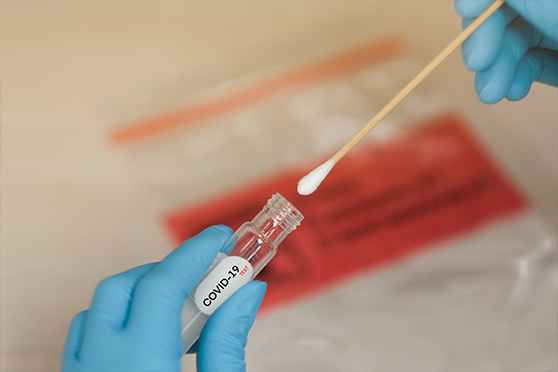IIT Delhi researchers devise RT-PCR based test kit to detect Omicron virus in 90 minutes


Indian Institute of Technology (IIT) Delhi researchers have devised a test that would detect the Omicron variant of the COVID-19 virus in a matter of 90 minutes, saving precious time.
Currently, the identification or screening for the Omicron variant is done worldwide using next-generation sequencing-based methods which require over three days.
Research scholars at IIT Delhi’s Kusuma School of Biological Sciences (KSBS) have developed an RT-PCR based assay for the specific detection of the Omicron (B.1.1.529.1) variant of SARS-CoV-2. This assay would detect specific mutations that are present in the Omicron variant and absent in other currently circulating variants of SARS-CoV-2.
Primer sets targeting these unique mutations in the S gene were designed for the specific amplification of either the Omicron variant or other currently circulating variants of SARS-CoV-2 and tested using real time PCR.
The assays were optimised to distinguish the wild-type from the Omicron variant in a dynamic range from 107 to more than 100 copies per reaction by using synthetic DNA fragments.
This assay can be used as a rapid screening assay for the identification and isolation of individuals with the Omicron variants. IIT Delhi has filed an Indian patent application for it and is in the process of initiating talks with potential industry partners.
The RT-PCR kit developed with a probe-free assay for the diagnosis of coronavirus by IIT Delhi has been approved by ICMR. The detection assay produced by researchers at the KSBS was validated with a sensitivity and specificity of 100%. IIT Delhi became the first academic institute to get ICMR approval for a real time PCR-based diagnostic assay. It proved useful for specific and affordable high throughput testing. As the assay does not require fluorescent probes, it could be easily scaled up.
KSBS at IIT Delhi was established in December 2008 with the help of a core grant received from the Kusuma Trust UK and a supporting grant from the institute. The school is committed to excellence in research and teaching. The mandate given to the school is to pursue research in key areas like infectious diseases and non-communicable disorders, cognitive and computational neuroscience and engineering biomaterials.
The school also offers a PhD programme and a MS Research programme for graduates and undergraduate students of IIT Delhi.